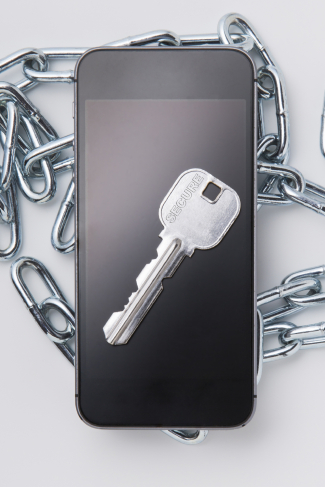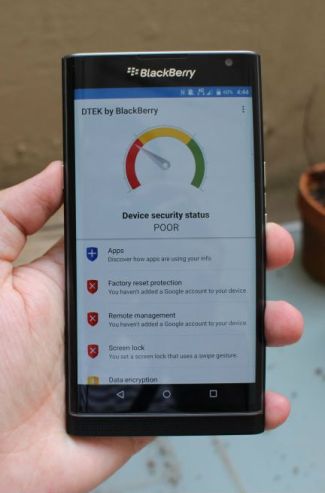This time of year, my social media feeds are filled with photos of my friends’ kids on their last day of school, preparing for graduation and other important milestones, plus pictures of my friends, family, and acquaintances on their summer vacations and spending time at the beach and the pool.
I love how easy social media makes it to catch up with people from all phases of my life – whether they are (formerly) long-lost grade school and college friends, people I’ve worked with throughout my career, far-flung relatives, or local neighbors and friends. Social media – Facebook, Instagram, Twitter, Pinterest, and the like – is my favorite way to share fun stuff with my social network, learn about milestones and other details from other people’s lives, and get the latest news from the world around me. And my mobile devices let me take advantage of all of this sharing anywhere I happen to be.
Sharing is great – it’s what we’re all taught to do from the earliest age – but our mobile devices may be blurring the lines between sharing and privacy a bit too much. According to security researchers and users’ reports, social media sites may be accessing our devices’ camera, microphone, GPS, and other features more than we realize. And a lot of people are uncomfortable with what they believe is an invasion of their privacy.
 Watch Your Mouth!
Watch Your Mouth!
Recently a Florida TV station ran a news story suggesting that Facebook uses your phone’s microphone to listen to your conversations and serves up ads based on what you talk about. After the story blew up on (of course) social media, Facebook published a statement saying that it doesn’t listen to your conversations for the purpose of selling ads. But, Facebook says, it does use your microphone “if you have given our app permission and if you are actively using a specific feature that requires audio,” such as the feature that allows you to include music you’re listening to in a status update.
Last year, the Netflix Android app began requesting access to the microphone, alarming some people who wondered why a movie-streaming app would want mic access. The company said it only wanted to enable users to call customer service from their tablets, and didn’t plan to listen to their phone calls (or their personal MST3K-style movie commentary). Still, many users remained unhappy.
Another Kind of Photo Bomb
I use my phone’s camera for a lot of things beyond taking snapshots. I take photos of grocery lists, parking locations, or documents I need to send people. Recently, Facebook has started asking me if I want to post my most recent mobile photos, which – frankly – terrifies me. What if I accidentally post the photo of our insurance card that I took to send my kids’ summer camp? Or the picture I took of my teenage daughter right after she got out of bed. (I think her resulting explosion would be the real definition of a photo bomb.)
Speaking of photos, I hope you’re aware that your smartphone’s camera geotags every picture you take. While this feature makes it easy for me to tag the location of a photo I post, I admit it’s pretty creepy that anyone can see where I’ve been.
The Creepy Doesn’t End There
You don’t need a photo geotag to be stalked by your phone. Thanks to Apple Health in iPhone and Google Fit on Android, your location is being tracked anywhere you take your phone, recorded for posterity. This is great for checking how close you get to taking the recommended 10,000 steps each day, but the stalker factor here is pretty huge.
While most people probably know that their fitness and mapping apps are tracking their movements (since that’s what they’re designed to do), there are a ton of other apps that are accessing your GPS data for seemingly no reason. According to Carnegie Mellon University’s Privacy Grade website, which evaluates Android app permissions, many popular apps including word game Words With Friends and screen-lock app GO Locker want access to your precise location data to serve personalized ads or enable certain app functionality.
 How to Shut Down Big Brother
How to Shut Down Big Brother
Anyone who uses a smartphone (and that’s practically everyone these days) should take time to consider how to balance sharing and privacy for their own comfort. Social sharing is fun, but you do need to be intentional with how much personal information your smartphone is collecting and potentially sharing about you.
If you’re concerned about Big Brother spying on you via your social media apps, dive into your phone’s settings to make some adjustments. For example, you can specify which apps and services do – and do not – have access to your microphone, location and camera.
If you’re a PRIV user, the DTEK app by BlackBerry for Android gives you a better way to control which apps are accessing your smartphone’s features. DTEK tracks your applications and notifies you when an app is accessing your camera, turning your microphone on, sending a text message, or accessing your contacts or location. Furthermore, you can check and see when, where, and for how long the access happened. It’s easy to turn off feature permissions that make you uncomfortable directly within the DTEK security monitoring app.
If that sounds like something you want in your mobile life, read how DTEK protects PRIV users’ privacy and security and about the latest improvements to DTEK and other PRIV features in the Android Marshmallow 6.0 update. Or, to find out where to get a DTEK-loaded PRIV in your market, check out our availability blog or hit ShopBlackBerry to find out how to get your own sweet new BlackBerry smartphone.
